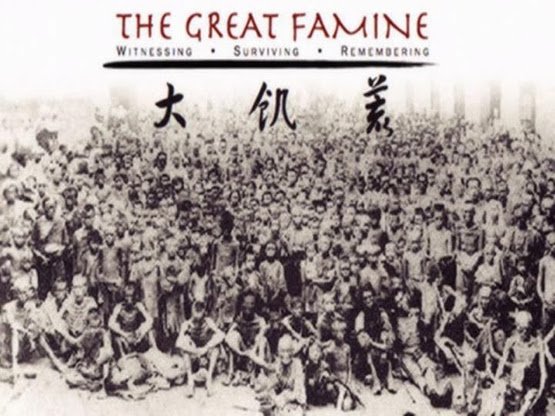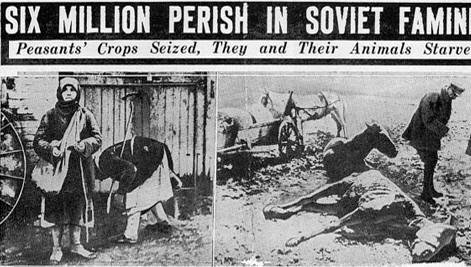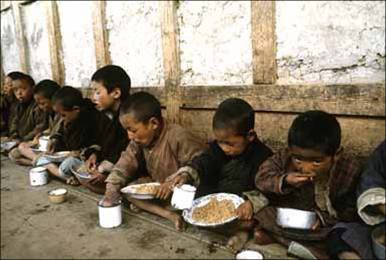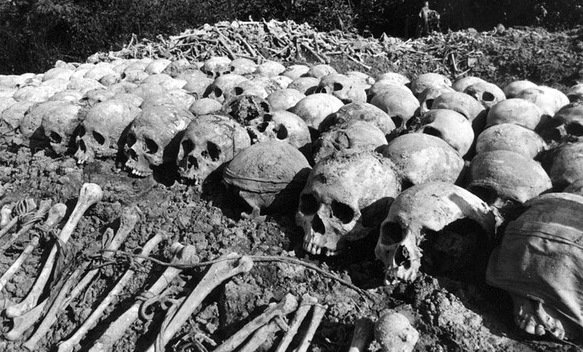Collective vs. Private Ownership (Part 2 of a Series)

One of the most fundamental differences between capitalism and communism is the difference between “collective ownership” versus “private ownership.” The question boils down to whether individuals should own things, or whether everyone should jointly own things. However, even that question is based on a basic misunderstanding.
To “own” something means to have the exclusive right to decide what is done with that thing. If I “own” a sandwich, if it is mine, then I can choose to eat it, save it for later, give it away, trade it for something else (if someone else wants to trade), feed it to pigeons, throw it in the mud, etc. It’s my choice, and my choice alone. No one else has the right to do any of those things to my sandwich without my permission. That is what it means to own something. The concept is pretty simple.
However, applying that definition to “collective ownership” immediately makes a mess, both conceptually and in practical terms. If ten people claim to “collectively” own a sandwich, what would that even mean? Ten individuals obviously cannot each have the exclusive right to decide what is done with the sandwich. And if the ten people vote on what to do with it, whoever loses the vote doesn’t share in the “ownership” at all. And if the sandwich is cut into ten pieces, and a piece given to each person, then none of them owns the whole sandwich, and then it turns into individual ownership of each piece.

Even in the simplest scenario, if two people both want one thing, and want that one thing used for different purposes, then there is a conflict. It doesn’t even make sense to say that they both “own” it, since that would mean that each of them has an exclusive right to decide what happens to the thing. If they happen to come to an agreement, that’s fine, but if either of them needs the permission of the other do use the thing, then neither of them really “owns” it. So really, the term “collective ownership”—or even “joint ownership” (with just two people)—doesn’t make any sense.
Of course, people can enter into voluntary agreements. For example, two people may cooperate to build a boat, with the agreement that they will take turns using it. But neither truly “owns” it, in the sense that on their “turn” they can’t decide to sell it to someone else, or chop it up for firewood. Reality and logic dictate that they can’t both have the “final say” in what is done with the boat.

Now expand that problem, beyond two people with one thing, to include all people and all things, and it quickly becomes apparent why actual communism (where the “collective” supposedly owns everything) is an impossibility. To say that everyone owns something really means that no one owns it, because saying that everyone has the exclusive right to decide what is done with a certain thing is nonsensical. The reason communism so often leads to violence is because, when no one is seen as having the exclusive right to decide what is done with something, then everyone thinks they have an equal right to use that thing. Then it becomes an argument over who “needs” it more (a la “to each according to his need”).
What inevitably happens any time there is “collectively owned” property (sometimes called “public property”) is that some individual or group, claiming to act on behalf of “the people,” will claim the right to decide how things are used “for the common good.” But if those people are the ones who get to decide, then by any sane definition, they own all of it. And that means forced centralized control, and centralized ownership (though they don’t call it that), of everything.
(The closest successful thing there can be to “public property” is the situation known as “the commons,” where the people in a certain area share certain resources, such as a water supply, a port, or some other resource. In those cases, no one truly “owns” it, in that no one has the right to do whatever he wants with it. Each person can use it, or collect resources from it, which he then personally owns, provided his taking doesn’t stop others from also benefiting from it. But even that best-case scenario often leads to the phenomenon known as “the tragedy of the commons,” where each individual has an incentive to get as much as he can for himself from “the commons,” before others get it.)

Despite all the mushy-headed collectivist rhetoric you will find in the founding documents of the Soviet Union, communist China, and North Korea (just to name a few), the reality is that the ruling classes in such regimes own everything, because they get to decide how everything is distributed or used. There is no such thing, and can be no such thing, as “the people” as a whole owning anything. It sounds nice, as long as you don’t actually think about it, because then you might realize how patently ridiculous the idea is.
Actual ownership depends entirely on who has the final say regarding how something is used. Euphemisms, feel-good rhetoric and inaccurate terminology don’t change reality. What is called “public property” is just “government property.” If you doubt it, try setting up camp in the middle of the local “public” park, and when badge-wearers come to forcibly evict you, explain that you are part of “the public.” See how well that works. You will learn that you have exactly no say in how that land is used, which means that you own none of it. And being able to beg the actual owners—the politicians—to please do something differently doesn’t make you “part owner” of anything.
By analogy, you can beg your neighbor to do something different with his own stuff, but since he gets to make that decision, you still “own” none of it. And the same is true in any collective, even in a supposedly “anarcho-communist” group. Whoever makes the final call, he is the owner, regarding of the rhetoric anyone uses.

And a situation in which no one has the final say will usually lead to violence: whoever can take control of something by force “wins,” because no one recognizes anyone else as having any special claim. This is why respect for private property is essential to a peaceful society. If everyone (or at least almost everyone) recognizes that Carl has the final say on what is done with Carl’s truck, and Betsy has the final say on what is done with Betsy’s chair, and so on, then peaceful coexistence is easy. But pretending instead that they are “everyone’s car” and “everyone’s chair” will invariably lead to conflict, confusion and strife, often violence. Of course, the rightful owner of something can still share it, give it away, lend it to others, and so on. But that only works if everyone still recognizes that it is ultimately the owner’s decision whether that happens.
In conclusion, in a society that understands and abides by the concept of individual “private property,” people know who has the ultimate say over things, with each person having the exclusive right to decide what is done with whatever he owns. In contrast, where people attempt to organize things via communism and “collective ownership,” no one ever knows who gets to decide how anything is used; no one has the final say, so it is never settled, never predictable, never stable, and never peaceful.
In short, communism is the “philosophy” of cockroaches and sewer rats: “whatever I want, I must need; and whatever I need, I must be entitled to; and whatever I am entitled to, I have the right to take.” And trying to make that sound progressive and high-minded doesn’t make it any more effective or legitimate, and doesn’t make the outcome any more pleasant.

Hi Larken!
Excellent explanation of ownership. One sentence in it really caught my attention:
"There is no such thing, and can be no such thing, as “the people” as a whole owning anything."
Collectivists have a hard time understanding that there is no such thing as "the people". It's only an abstract term for a collection of individuals. Abstractions can't act on their own, they can't reason or think and they sure as hell can't "own" stuff.
That is an excellent explanation!!
This is some of your best work yet, Larken.
ex nay on the collective lol
Exactly. The entire philosophy of redistributing what is owned by A -- and giving it to B, C, and D -- that philosophy still relies on the concept of ownership. Despite the importance communists place on a "sharing" sentiment, the philosophy of communism simply asserts that ownership has favored the wrong people. It's all based on the idea that capitalists stole what workers rightfully own and so, it all comes back to ownership.
Good stuff! Really glad Steemit is here for you to produce and continue to get paid for great content, especially since Connectapal didn't work out. By the way, are all of your old daily rants gone with deleting the account, or will you maybe make them accessible elsewhere?
Socialism seems like a good idea to the liberals. Right up until they have something of their own that gets taken from them. Especially if that something was actually hard earned.
My friend does this kind of teaching in his classroom with candy. He gives some candy to a student, and then talks about distributing it.
Communism is just socialism with guns and impatience.
https://safenetforum.org/t/public-servant-accountability-app/11514
An attempt to create a platform through which any public position can be held personally accountable for their actions and expenditures on the public behalf. Something like this concept is the only way I can see public institutions functioning in the Information Age.
Thanks for all the information you put out there Larken! You've been a huge influence to many people, including myself.
This post has been linked to from another place on Steem.
Learn more about linkback bot v0.4. Upvote if you want the bot to continue posting linkbacks for your posts. Flag if otherwise.
Built by @ontofractal
I appreciate the way you clear out the indoctrination so I can see more clearly.